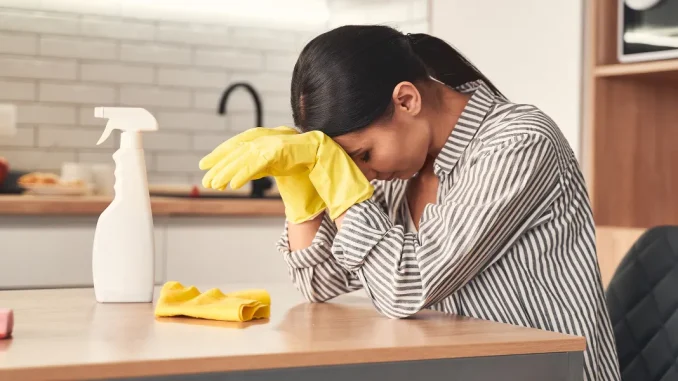
I’m Talia, and I once believed love meant doing everything so others didn’t have to. I kept the house clean, the fridge stocked, the baby fed, and my teenage son barely on time, all while supporting my husband, Rick, who worked in construction. I thought that was enough.
But then one day, my son Eli laughed at me with his friends, and I realized I had built a life where being needed had become being taken for granted.
I have two sons. Eli, 15, is full of teenage angst, distracted by his phone and his hair, while Noah, my six-month-old, is pure chaos. Meanwhile, Rick comes home from work demanding meals and foot massages, expecting everything to be done.
He often says, “I bring home the bacon, you just keep it warm, Talia,” like it’s a joke, but I don’t laugh anymore. I used to play along, but the constant repetition of his words started to sting.
Eli’s picked up on it too, often parroting Rick’s attitude. “You just clean, Mom,” he’d say, or “Isn’t this what women are supposed to do?”
I realized I had become the joke. The one who kept everything running but was treated like background noise.
Then, one day, after Eli made another careless joke with his friends, I made a decision. I had secretly been building something of my own—freelance work that gave me a sense of independence. I saved the money, not for fun, but for an escape: a week of silence, away from the house and the expectations.
I didn’t ask permission. I just packed up, took Noah, and went to a cabin in the mountains. When I returned, the house was a disaster, and Eli, tired and embarrassed, apologized. Rick, too, acknowledged that he hadn’t realized how much I had been doing.
Things changed after that. Eli now helps with laundry, and Rick cooks twice a week. They both thank me for the little things. I still clean and cook, but not out of obligation. I do it because this is my home, too. And now, they help keep it running.
I also continue my freelance work, which is now a real part of my life. When I left, they learned, and now I’m back on my own terms.
The hardest part wasn’t leaving; it was realizing that for so long, I had been everything for everyone, and no one had ever asked if I was okay. Respect, I’ve learned, doesn’t always come through confrontation—it comes through silence and absence, through realizing the work doesn’t just happen.
Now, Eli pauses when he sees me folding laundry. Sometimes he offers help. And Rick no longer jokes about “maids.” They see me now—not just as a fixture in the home, but as the woman who kept everything together and had the strength to walk away when no one noticed.
Leave a Reply